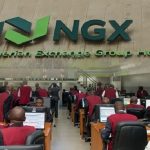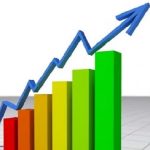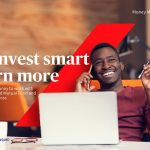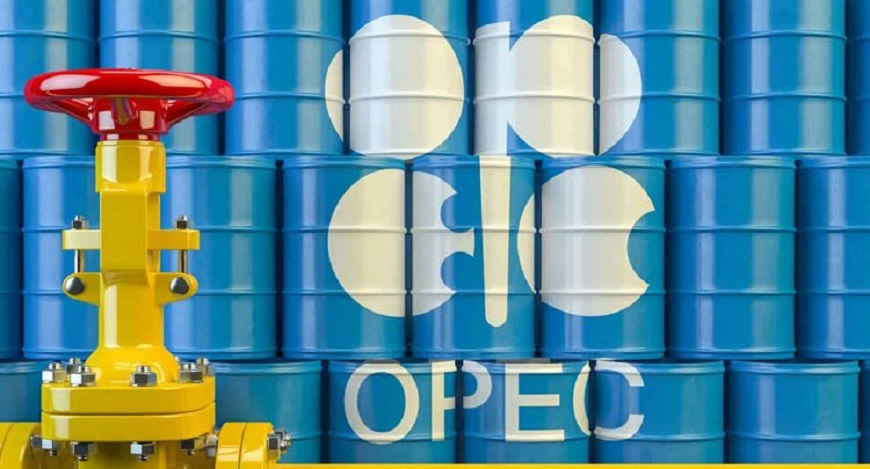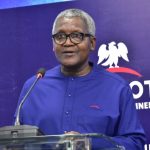Feature/OPED
Not Crowd But Decision To Vote Wisely

By Jerome-Mario Mario Utomi
As the nation Nigeria braces for the forthcoming February 25 and March 11 general elections, each time I look at the sea of heads that flood every political campaign and rallies put together by public office seekers at both state and federal levels, it reminds me of an event that happened back in the days. Though used in part a while ago in a similar intervention, I, however, believe that such an account has become even more relevant in the present threshold of our nation.
The referenced event was recorded one Sunday morning during the celebration of the holy mass in one of the Catholic churches in Delta State (please don’t ask me about the town).
For a better understanding of the piece, Holy Mass is the Catholic order of worship. One of the major high points of the mass is called the prayer of the faithful. This is when carefully and well-rehearsed lay faithful, usually about five in number, are invited before the altar to pray for different intentions on behalf of the entire people attending worship.
On this particular day, a man, who we later discovered to be a non-Catholic, emerged from the rest of us. He was neither selected nor part of those that rehearsed for the above function but, without recourse, made his way to the altar with a supersonic speed and assumed the first position.
Though strange as it were, the churchwarden was left with no other option than to allow him in order not to create a scene and just very slowly, the altar boy handed over the microphone to him for ‘his’ prayer of the faithful. And the man prayed, ‘father in heaven, in my effort to solve my legion of problems, I have but against my will visited “Babalawo, Dibia, as well as Ifa priests, all to no avail and I have decided to come back to you’. The rest of that episode, called prayer of the faithful, could best be imagined than seen as the entire congregation burst into uncontrolled laughter.
Even though the above took place some decades ago, it instructively represents what is playing out in today’s political topography called Nigeria. While the man in the church represents you and me, the church or the town represents our nation Nigeria.
Also, while the man was forced into visiting the places, he mentioned above by circumstance, the same way we as a people were forced into a cosmetic marriage called amalgamation in 1914 by our then colonial imperialists. And right from that moment, things have never been the same as the centre cannot hold.
But unlike the man in the church, we as a people, made up of different tribes, have for a long time bore pockets of reservations and misgivings against each other. But lacking in courage to voice out or express it, as demonstrated by this man.
These ‘national’ misgivings against one another had lingered since the nation’s independence in October 1960 and have been with us until recently when people started breaking their long-enjoyed silence. From all indications, that pregnancy we have been carrying as a nation has completed its gestation, hence, the rumbles occasioned by ‘labour’.
Regrettably, as it is interesting, the above situation calls for candid self-introspection and interrogation to summon the moral authority and legitimacy to challenge and possibly correct this asymmetrical and artificial way of living as a nation.
Call it restructuring or sovereign national conference, constitutional amendment or an outright rewriting of the constitution. One thing is crystal clear and that is the fact that the foundation of our nationhood is faulty, and all the amalgams have very visibly advertised their mutual suspicion or outright grudge against the other.
Laughable as it appears, the man in the church represents us in all areas but one, and that is our not being courageous. It is also instructive at this juncture for us to remind ourselves that ‘courage faces fear and masters it while cowardice represses fear and is thereby mastered by it.
Courageous men never lose their zest for living even though their life situation is restless, but cowardly men, overwhelmed by the uncertainties of life, lose the will to live.
I hope and pray that the man from the sleepy town will not be laughing at us just the way we did to him the day he demonstrated the man in him and declared his willingness to exit “the Paris Club of Bondage.”
Some of the reader’s minds will gravitate towards prayer, either seven days or one-month fasting and prayer just because I painted a picture of a challenge or problem. Let the truth be told, the problem bedevilling our nation calls for more action garnished with courage than prayer.
It calls for the speaking of undiluted truth, and it calls for a disciplined shift of mentality from feeling optimistic to becoming self-confident. Their difference could be spotted in their modus operandi as well as their end result. In optimism, we hope for the best but lack the courage to fight on, while in self-confidence, one prepares for the worst but summons that unalloyed willingness to fight.
This is the missing link. We have deliberately allowed the leadership value-addition role to elude us by failing to hold our leaders accountable, even in the face of misrule.
We punctuate their incivility and actions with our local palace ‘e go beta’ we forget completely as a people that ‘development is stimulated by asking why and how’. Truly, we have, through our actions and inactions, authenticated the saying that ‘the problem with us is that we are the problem.’
We are well aware of the counterpart relationship that exists between our leaders and us but has lost the moral force to implement it. Even as they are regrouping for the 2023 electioneering onslaught, we are feeling unconcerned. We have proved without measure that we lack strategy, and as a result, we are neither forward-looking nor able to figure out what comes next. This, I must say, is pathetic.
The ‘man in the church’ summoned the courage to confess his past escapades, we as a people should equally and very urgently summon the moral and political will to demand good and result-oriented governance.
Let’s make no mistake about it, this journey demands a struggle, a conscientious industry for us to achieve this anticipated good governance and symmetrical coexistence from our leaders. But the good news is that we can.
Yes, that is the interesting part of this conversation. It is my conviction that we have the capacity to enthrone a nation where we can coexist harmoniously, irrespective of tribal inclinations. I am full of hope that together, we can establish the egalitarian society that we have been deprived of.
But for us to achieve this as a nation, we must team up and fight our common enemy called bad leadership and its proponent. Let us also fight the deconstructionists masquerading as leaders by making sure that come 2023, we shall collectively reject the mentality of instant gratification by rejecting all the alluring inducements of our undemocratic and selfish politicians and go ahead to electing credible people as our leaders.
Let us, like ‘the man in the church,’ realize that waiting to be recognized by our leaders will translate to waiting till eternity. It is my opinion that we draw and apply the lessons learnt from ‘the man in the church’. Let his courage spur us to action so that we shall file out not for ‘prayer of the faithful’ but to ask our leaders questions and drive our corrupt leaders away from our political geography using legitimate and democratic means.
Achieving the above objective will not be anchored on gathering at campaign rallies, but it would require citizens to vote wisely in the forthcoming general election in the country.
Thus, as we work tirelessly, and hope faithfully for a great nation where peace, unity and justice shall reign, let us not just pray like ‘the man above’ but rather let us look up to God our maker and talk to him through our positive actions and join our faith with that of James Weldon Johnson, to say ‘Oh God of our weary years, God of our silent tears, Thou hast brought us far on the way; Thou who by the might lead us into the light.
Keep us forever, in part, we pray. Lest our feet stray away from places, our God where we meet thee, lest our heart is drunk with the wine of the world, and we forget thee; Shadowed beneath thy hand, may we forever stand true to our God, true to our native land’.
To this, I say a very big amen.
God bless Nigeria!!
Jerome-Mario Utomi is the Programme Coordinator (Media and Policy) at Social and Economic Justice Advocacy (SEJA), Lagos. He can be reached via jeromeutomi@yahoo.com/08032725374
Feature/OPED
How Investments in Reskilling and Trust Help Businesses Succeed in the Agentic AI Era
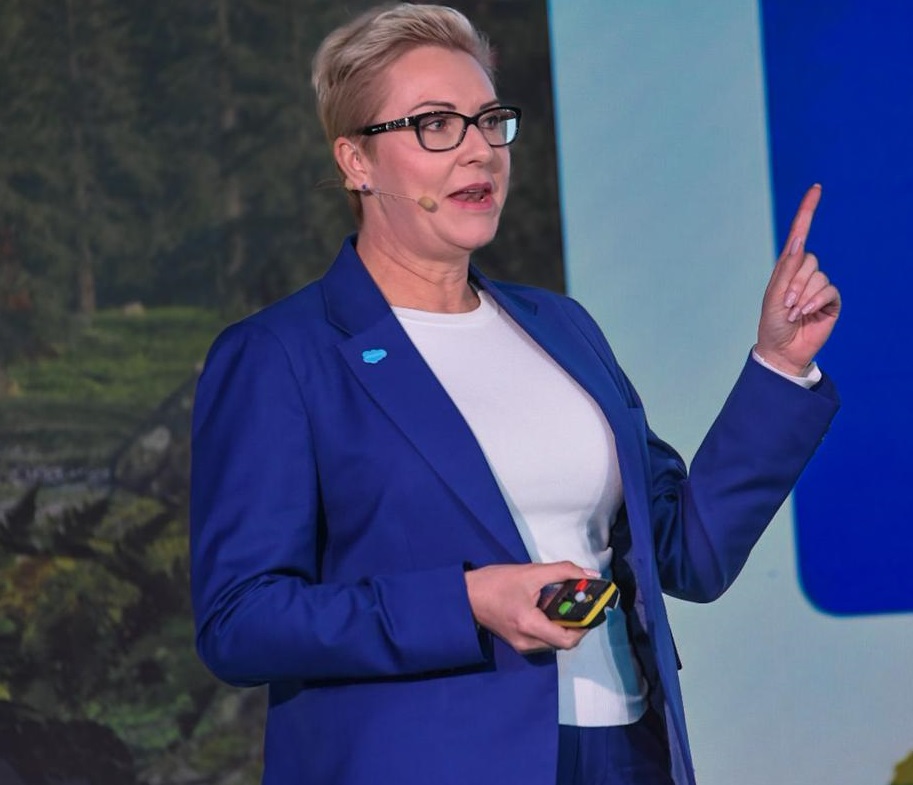
By Linda Saunders
The ascent of agentic AI, systems that can perform tasks without human intervention, represents not just an incremental technological advancement but a fundamental reshaping of the business landscape. The possibilities for enhanced productivity and innovation are immense. Using AI agents, businesses around the world are unlocking a piece of the potential $6 trillion digital labor market opportunity.
Businesses that fail to adopt agentic AI, however, risk disruption by competitors or savvy upstarts. This demands a proactive and strategic response from leaders. In this new era of human-AI collaboration, leaders must center their efforts around two key pillars: large-scale employee reskilling and establishing a trustworthy AI ecosystem.
Reskilling for the agentic AI era
With just 15% of workers saying that they have the education and training necessary to use AI effectively, reskilling must be a priority for every business leader.
Employees must be given access to learning opportunities so they can adopt human-AI collaboration skills, including a foundational understanding of agentic AI and prompt engineering — a way to provide clear and effective instructions to AI systems.
Consider, for instance, the evolving role of developers. With AI agents capable of handling routine coding, developers can focus on bigger-picture tasks like system design and future planning.
According to Salesforce’s latest State of IT survey of software development leaders, more than nine in 10 developers are excited about AI’s impact on their careers, and an overwhelming 96% expect it to change the developer experience for the better. More than four in five believe AI agents will become as essential to app development as traditional software tools, the survey found.
In addition to technical abilities, cultivating human and business skills is vital for fostering a trusted environment where teams feel comfortable experimenting with AI. And, as every employee increasingly manages individual or even teams of agents, developing basic managerial skills across the workforce will become increasingly important.
Identifying the skills is just the first step. To succeed in the agentic AI era, businesses need to develop a comprehensive strategy that incorporates these skills into their workforce plan. This includes setting clear, measurable goals and actively tracking progress.
Managers need to provide active guidance and support to employees throughout this transformation, ensuring the workforce remains relevant and engaged.
Adopting trusted AI across the ecosystem
As the capabilities of agents grow, so too does the responsibility to manage associated risks. It’s imperative to ensure these systems are fair and prevent stereotypes or alienation. The very qualities that make AI transformative can also lead to biases and erode trust if not managed.
To fully harness the potential of agentic AI, businesses must prioritize trust and safety at every stage of development and deployment. This means implementing strong security measures and adhering to ethical AI practices to safeguard data and ensure responsible use.
Guardrails for AI agents can be established using natural language topics and instructions specifying when an agent should escalate or transfer a task to a human. Concerns around data privacy and potential biases must be proactively addressed through strong data protection protocols and transparent communication.
Equally important are tools that foster transparency and empower users to make informed decisions regarding task delegation to AI. Employees need a clear understanding of the capabilities and limitations of the AI agents they collaborate with, alongside having control over the tasks being automated.
A key feature of Agentforce is its capacity for autonomous operation within specifically defined guardrails. This means that while AI agents can operate independently, making decisions and taking actions, they do so within boundaries established by human teams, ensuring alignment with business objectives and policies. The Einstein Trust Layer enables Agentforce to use any LLM safely by ensuring that no Salesforce data is viewed or retained by third-party model providers.
The power of reskilling and trust to drive innovation
The transition to an AI-powered future will bring challenges, particularly ensuring employees have access to the right infrastructure, high-quality data, and relevant skills.
However, by investing in reskilling and comprehensive training programs, organizations can empower teams to work effectively alongside AI agents, adapt to the evolving nature of work, and ultimately drive innovation in this age of digital labor.
Building a robust infrastructure that prioritizes trust and safety, and fosters transparency, will also be instrumental in mitigating disruptions and unlocking new opportunities for growth.
Ultimately, investing in both AI agents and human employees, and actively fostering their collaboration in a trusted way, will enable businesses to operate at scale and realize their full potential in the agentic AI era.
Linda Saunders is the Country Manager and Senior Director of Solution Engineering for Africa at Salesforce
Feature/OPED
Africa’s Pastoralists Hold the Key to Sustainable Livestock and Environmental Balance

By Daouda Ngom
Across Africa, pastoralists and livestock keepers sustain herding systems which are closely bound up with our landscapes and crucial to nationwide food security, economic growth, and ecological balance. In my country, Senegal, almost 70 percent of our land is used to graze livestock.
And yet, I hear it often argued that – if we want a sustainable future – we must choose between hooves and habitats because livestock is an “environmental liability”.
But this point of view is misunderstood. Across Africa, innovative approaches and technologies are being piloted to allow livestock and a healthy environment to coexist. What we need now is more investment and collaboration to scale these breakthroughs.
Despite being home to more than 85 per cent of the world’s pastoralists and livestock keepers, sub-Saharan Africa produces just 2.8 percent of global meat and milk. As a result, one in five Africans do not have adequate access to nutritious foods, including animal source foods. Fixing this can be simple: a single egg, a cup of milk, or a small piece of meat can make all the difference to combatting malnutrition.
Meanwhile, populations are growing and urbanising faster here than anywhere else in the world. Demand for meat and dairy products is forecast to rise 300 per cent by 2050.
Thankfully, evidence is already out there which proves that we don’t need to sacrifice a healthy environment to meet this rising demand.
Pastoralists in Senegal, for example, move their animals strategically to mimic natural grazing patterns, considering rainfall to prevent overgrazing. This not only improves biodiversity and soil quality, but also reduces dry vegetation and the growing threat of wildfires. To support, the Senegalese government has been providing our pastoralists with detailed weather data and forecasts to help them optimise grazing and manage their livestock more efficiently.
Working with communities in this way has been shown to reduce conflicts for land and water resources and restore landscapes.
Elsewhere in Africa, animal health interventions are demonstrating how better, not necessarily fewer, livestock is the answer to sustainability in the sector. East Coast fever vaccination programmes have reduced calf mortality up to 95 per cent in some countries. More than 400,000 cattle have been saved in the past 25 years, reducing emissions up to 40 per cent.
Moreover, new thermotolerant vaccines for the highly contagious viral disease peste des petits ruminants (PPR) – as demonstrated already in Mali – offer a promising way to curb the $147 million in annual losses of sheep and goat keepers across Africa. Boosting productivity among these climate-resilient animals will be essential for nourishing Africa’s rapidly growing population as climate change intensifies.
However, despite these successes, an important challenge remains. I have seen firsthand that many pastoralists, smallholders and subsistence farmers lack the knowledge and resources needed to access and implement these innovations. These groups account for the majority of Africa’s livestock keepers and must be reached for these innovations to realise their benefits at scale.
Two things are needed to bridge this gap. First, greater collaboration between policymakers, researchers, farmers and businesses can help us to better understand the challenges that livestock farmers face and help them to produce more, without compromising our environment.
For example, collaborative initiatives like the Livestock and Climate Solutions Hub launched by the International Livestock Research Institute are a way of showcasing practical ways for farmers to reduce their herds’ impact on the environment.
The second element is investment. For decades, despite the clear potential of high returns on investment, the livestock sector has suffered from a vast investment gap, receiving as little as 0.25 per cent of overall overseas development assistance as of 2017. It must be made financially viable for livestock keepers to invest in technologies and approaches that raise productivity sustainably, or else this mission will not even get off the ground.
The upcoming World Bank Spring Meetings – where funding for development initiatives will be determined – presents a timely opportunity to kickstart this paradigm shift so that livestock is recognised within green financing frameworks.
African countries, in turn, must do their part by incorporating livestock into their national economic development plans and their climate action plans. This will help encourage funding streams from global investors and climate financing mechanisms, ultimately catalysing a multiplier effect of billions in livestock sustainability investment.
The solutions are within reach. What is needed now is the will to act decisively and unlock the continent’s unparalleled natural resource potential to build a future where prosperity and sustainability go hand in hand.
Daouda Ngom is the Minister of Environment and Ecological Transition for Senegal
Feature/OPED
Na 2027 We Go Chop?
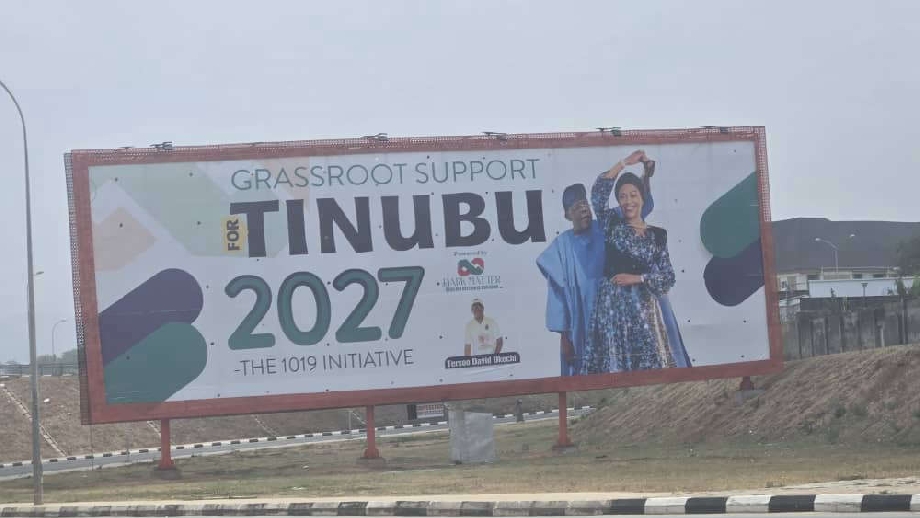
By Tony Ogunlowo
All the talk in the political arena, right now, is about the elections in 2027, two years away: how Tinubu is going to win a second term in office or how a coalition fronting Peter Obi or Atiku is going to unseat him.
The year 2027 is still a good two years away and what the President was [supposedly] elected to do in his first term he hasn’t even scratched the surface of it apart from indulging in the usual blame-game on his predecessor, complaining about lack of funds and presiding over party-in fighting. Just like Nero played the fiddle while Rome burned he still manages to go on long foreign holidays oblivious to what is going on in the country.
Politicians in Nigeria seem to forget, very quickly, why they were voted into office in the first place: they are there to serve the needs of the people, not to enrich themselves, legally or illegally, not to make a name for themselves and certainly not to ignore the needs – and security – of the people who voted them into power.
The average politician is of “…anywhere belle face…”, which is to say for me, me and myself: no morals, no principles and no integrity. They jump ship quite often and ‘if ‘lagbaja’ is paying then I’m joining his party’ which will explain the mass exodus of governors, senators and other politicians decamping to the ruling APC party, risking the nation fast becoming a one-party state.
As we’ve seen from history one-party states don’t work: it only promotes corruption, inefficiency and cronyism. The old USSR collapsed for the simple reason the party fat cats were more concerned about maintaining their bourgeoisie lifestyles than looking after their people: they forgot what they were there for. The same is happening in Nigeria now.
How much does a ‘congo’ of rice or garri cost? Or a tray of eggs? How much does it cost to fill up your car tank, if you can? Or how much is your electricity bill, even though you didn’t get any power? And what about security? What’s to say you won’t be robbed, kidnapped or killed tomorrow when you are out and about? This and a multitude of other problems is what is happening on the streets of Nigeria on a daily basis. Of course, the high and mighty and politicians live in their high walled private estates with fresh food flown in from abroad weekly, armed guards to watch over them and totally oblivious to what’s going on around them.
There has been no improvement on the situation and things are only getting worse. Sadly, the only thing on your average politician’s mind is how he/she is going to get re/elected in 2027 by crook or by hook and they got a slew of PR experts and marketing gurus to come up with new campaign slogans and a basket-full of promises they’ll never fulfil. In a sane climate if a politician is doing the job he was elected to do to the people’s satisfaction, in the first place, he wouldn’t have to worry about re-election: the people would vote him in willingly.
When you’re employed by a company, for instance, you’ll be subject to weekly, monthly or quarterly assessments by your immediate superior. You are expected to hit certain targets and if your performance falls below what is expected of you you’ll be fired! Why can’t the same rule apply to our politicians? If you don’t do what we expect from you, you are out at the next election. Performance is the key word here and this is how it should be. But come the next election and the starving, belittled, abused, unemployed, sick and endangered people will still vote for the incumbent President despite the fact he’s done nothing proactively to turn things around in his first term, as his predecessor did nothing and as his predecessor did nothing…should I continue to go backwards in time? People seem to have a very short memory until the hardship kicks in.
The Chinese say “..a journey of a thousand miles begins with a single step..”, Nigeria’s problems, as gargantuan as they are, can only end when politicians put their selfish interests aside and make a conscious effort to start changing things, a step at a time. Start with tackling the high cost of living. Remember a hungry man is an angry man. Try by making the basic things in life such as food, fuel and electricity affordable: empty promises don’t fill a hungry man’s stomach it only fuels dissent.
And the people have themselves to blame too, why vote in a person who’s going to do nothing for four years and vote him in again?
Itsbeggar’s belief.
So why all the politicians are fretting about themselves, stabbing each other in the back in an attempt to get re-elected, I simply ask ‘na 2027 we go chop?’(-if only it were possible!). Very soon the slogan ‘ebi pa wa o’(we are hungry) will become the new national anthem hopefully forcing politicians to forget their obsession with the 2027 elections and do something….perhaps!
You can follow Tony Ogunlowo on Twitter: @Archangel641 or visit http://www.archangel641.blogspot.co.uk
-

 Feature/OPED5 years ago
Feature/OPED5 years agoDavos was Different this year
-
Travel/Tourism9 years ago
Lagos Seals Western Lodge Hotel In Ikorodu
-

 Showbiz2 years ago
Showbiz2 years agoEstranged Lover Releases Videos of Empress Njamah Bathing
-

 Banking7 years ago
Banking7 years agoSort Codes of GTBank Branches in Nigeria
-

 Economy2 years ago
Economy2 years agoSubsidy Removal: CNG at N130 Per Litre Cheaper Than Petrol—IPMAN
-

 Banking2 years ago
Banking2 years agoFirst Bank Announces Planned Downtime
-

 Sports2 years ago
Sports2 years agoHighest Paid Nigerian Footballer – How Much Do Nigerian Footballers Earn
-

 Technology4 years ago
Technology4 years agoHow To Link Your MTN, Airtel, Glo, 9mobile Lines to NIN




